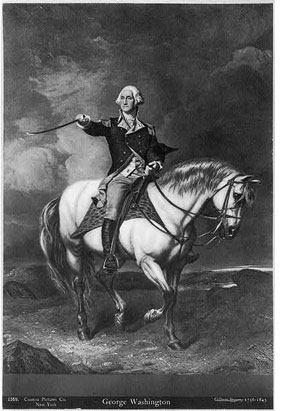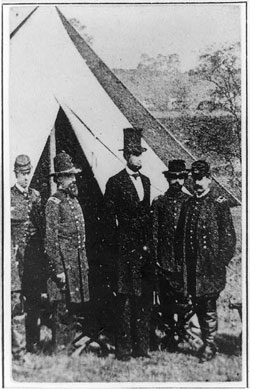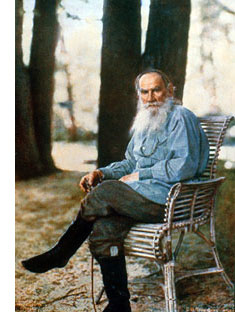|
Historian Doris Kearns Goodwin's Years with Lincoln Reveal the Man Behind the Icon Selected remarks taken from her talk at |
Lincoln's Life,
Leadership, & Legacy
During the Civil War, Lincoln was the one, time and again, who sustained the spirits of his colleagues with his affability, his good nature, his kindness, his sensitivity and his remarkable gift for storytelling. In fact, that gift for storytelling was really born, I think, when he was only a child. He tells the tale of how peddlers walking by their log cabin, which was close to the road, would often stop and tell stories to his father, and Abe said he couldn’t go to bed at night until he could recast those stories into words that his friends at work in the field the next day could understand and listen to. He would climb on a tree stump and entertain them for minutes on end, probably learning the pleasure an attentive audience brings even at an early age.
 |
|
|
During the Civil War Lincoln was the one, time and again, who sustained the spirits of his colleagues with his affability, his good nature, his kindness, his sensitivity and his remarkable gift for story telling. |
|
One of his favorite stories had to do with the Revolutionary War hero Ethan Allen. It turned out Ethan Allen went to Britain after the Revolutionary War and the British people were still upset about losing the war, so they decided to embarrass him a little bit and tease him a little bit by putting a picture of George Washington in the outhouse where he would have to encounter it, and they figured he would come out somewhat grumpily, but he went in the outhouse and he came out smiling, and they said, “Well, didn’t you see George Washington there?” “Oh yes,” he said, “I think it was the perfectly appropriate place for him.” “What do you mean?” they queried. “Well,” he said, “There’s nothing to make an Englishman shit faster than the sight of General George Washington.” So think of Lincoln that way. . . .
But his stories were not really only amusing. They often had a practical wisdom that somehow was engaged in a humorous tale or they were used to diffuse tensions before the worst cabinet meetings. He would often start a cabinet meeting with one of these stories, and you can imagine then that these colleagues who were feuding would somehow have to laugh. But I think what moved me the most about Abraham Lincoln was the depth and the nature of his ambition.
Very early on, I believe he understood that he possessed unusual talents and he was burning with a desire to learn, and yet he was only able to attend school, as he later said, a few weeks here and a few weeks there, because schools in those days were subscription schools requiring a payment on the part of the family and his family didn’t put up the money. His father would loan him out to various farmers in the fields to pay off various debts, so even while he was in school he would be pulled out. He finally figured he’d only gone to school for one year, all total, of formal schooling. As we all know, he scoured the countryside for books and read everything he could lay his hand on. It was said when he obtained a copy of The King James Bible or Aesop’s Fables that his eyes would sparkle. He couldn’t sleep. He couldn’t eat. The poet Emily Dickinson once said, “There is no frigate like a Book to take us Lands away.” And in many ways that’s what happened to Lincoln. Though he never would travel to Europe, he went with his beloved Shakespeare’s kings to England, he went with Lord Byron’s poetry to Spain and Portugal. In many ways literature allowed him to transcend his surroundings.
There were so many losses, however, in his early life that he was haunted by death. His mother died when he was only ten years old. His father left Abe and his sister, Sarah, who was only twelve years old for several months on end while he went back to Kentucky to bring back another wife. . . . Abe’s first love, Ann Rutledge, died at twenty-two years old. And it was said at the time that somebody said to him, “Well, don’t you believe you’ll see all these people in an afterlife later?” He said very sadly, “I wish, I wish I would believe that, but I’m not sure that I do.” He couldn’t bear the idea that when you die you simply become dust. So he somehow seems to adopt the ancient Greek notion that you could live on if you accomplished deeds that were worthy enough to be remembered by the generation--if you somehow left life better for the people around you, then your story would be told after you died. But I believe that deep, worthy ambition became his lodestar carrying him through his long life.
It carried him through his single term in Congress, which was very troubled for him because it turned out that he questioned the rationale for the Mexican-American war. You may feel some analogy. He argued that the president had instigated the war for purposes that were different from the actual purposes that he led us into the war. But at that time the Mexican-American war was very popular and Lincoln’s antiwar stance meant that he probably could not have run for Congress again had he tried. But this ambition was so much larger than just office or power that it carried him through two failed races for the Senate--not stopping with the first failure, not stopping with the second failure. He then ran for the Republican nomination for the presidency in 1860, though he was considered the least likely to win.
And, remarkably, once he did win, which was, I think in part, because he worked harder than everyone else, was shrewder than the other candidates--he was the one who maneuvered the convention to have it held in Chicago, where he could then pack the hall with his own supporters. He had made no enemies in his long life, whereas all the other leading candidates had made enemies all along the line. So his strategy was that if you have to give up your first love, come to me as a second love. He never said anything bad about any of the other candidates so that no one felt when they had to go to him that he had undone them in the long run. But I think most importantly there was the character of him, that--unbeknownst to the other people--that had slowly, slowly, slowly worked himself through his speeches, through his dazzling writing star, into somebody they could trust if they turned the Republican party over to him.
 |
|
|
I think his most remarkable strength in the first place was a profound empathy. He somehow was able to understand, almost like he absorbed the feelings of people on all sides of the political spectrum, the feelings of the Southerner’s as well as the Northerner’s. |
|
It started when as even a young man he was asked to address a Temperance Society meeting. The Temperance organizations in those days were so passionate, much as the abortion debate is today. The Temperance organizers and the advocates would argue that those people who drank were capable of evil and that they were the source of all misery in the land. Lincoln went before them, and he said you’re never going to reach the drinkers if you talk about them that way. Denunciation leads to denunciation. Anathema leads to anathema. It’s the nature of man, he said, if he is so shunned to retreat within himself. You’ve got to try to reach the heart of these people who drink--through reason, through talking to them, through trying to provide an alternative. And that became, in some ways, the template for all of his speeches later. Empathy, I think, was his central character.
But also, he was so quick to acknowledge error whenever he made a mistake. He said you have to learn from the mistakes you made. He wrote to a general who had made a mistake: “I frequently make mistakes in the things that I have to do hastily; the thing is not to look backward but to acknowledge the mistake, to move over and learn from that.” When he was angry with someone he would write a hot letter and put it aside until his emotions had cooled instead of berating a subordinate in any way in public.
The other thing that I think was so rare was that he would shoulder responsibility for the failures of his subordinates. When his first Secretary of War, Cameron, was about to be censured by the Congress because in the early days of the war he had let contracts out to suppliers through middlemen who made off with scandalous profits, and then the weapons that were produced fell apart and didn’t work, it was seen somehow as if it were Cameron’s fault. Lincoln stood up for his belief in the Secretary of War and said if anyone was to be at blame it was him and his entire cabinet because there was such chaos in the early days of the war. They had to get the Union Army supplied, so they did put out some unfortunate contracts, but it wasn’t Cameron’s fault. Cameron said no one else would have stood up for him at a time when everybody was piling on him, that it took an unusual man, and Lincoln was that unusual man.
After each battle was lost, he was immediately able to get himself onto a boat or a train to go to the front. He knew he had to see his soldiers immediately, even if it meant being in the midst of the battle itself. He went more than a dozen times to the front during his presidency, walking amongst the thinned ranks of the soldiers, visiting the wounded in the hospital, telling them stories which they then would tell to a hundred more people, and just bolstering their morale and, in turn, his being with them bolstered his morale. He could come back and write a public letter to the country which was one of the communications at that time or give one of his extraordinary speeches that would give meaning to the war, none more extraordinary, of course, than the Gettysburg Address, where he understood that he had to give a purpose that was larger than the war itself, and that purpose was to protect of the people, by the people, for the people, this great democratic experiment so that these soldiers had not indeed died in vain.
As a president he understood the importance of staying in touch with people at all levels. When the White House was much , anybody who wanted a job actually could roam into the White House, stand in a line, knock on Lincoln’s door, give him his life story and say, “I’d like a particular job in the Customs House,” and Lincoln’s secretaries Nicolay and Hay would go to him and say, “Lincoln, you don’t have time to talk to these people,” and he said, “I have to listen to their life stories. They are my public opinion pass. I’ve got to remember the popular assemblage from which I have come.”
 |
|
|
They asked Tolstoy to tell stories of the great men of history. So Tolstoy said he sat down and he told them all about Napoleon and Frederick the Great and Alexander and they were so excited, but before he finished they said, “But you haven’t told us about the greatest ruler of all. We want to hear about that man who spoke with that voice of thunder, that man who laughed like the sunrise, that man who comes from that place called America...tell us of Abraham Lincoln.” |
|
So that dream that empowered Lincoln from his earliest days, taking him through all the early losses in his family life, through those early failures in his political career, that dream to accomplish something that would stand the test of time, that would allow his story to be told, had indeed been realized. But even Lincoln could never have imagined how far his name would eventually travel. I was so thrilled when I was trying to figure out how to end the book and not wanting to end it simply on the sad note of the assassination, when one day I found this amazing article where an interview was made with Leo Tolstoy, the great Russian novelist, in 1908. It was published in the New York World.
Tolstoy told of a remarkable journey he had made a few years prior to a remote area of the Caucuses where there was a bunch of rude barbarians who had hardly ever ventured beyond their land and knew very little of civilized life outside their area. So they asked Tolstoy to tell stories of the great men of history. And Tolstoy said he sat down and told them all about Napoleon and Frederick the Great and Alexander and they were so excited, but before he finished they said, “But you haven’t told us about the greatest ruler of all. We want to hear about that man who spoke with the voice of thunder, that man who laughed like the sunrise, that man who comes from that place called America, which is so far from here that if we should journey there as young men, we would be old men when we got there. Tell us of Abraham Lincoln.”
Tolstoy said he was stunned to know that they had somehow heard of the great deeds of Abraham Lincoln. So he told them everything he could know about Lincoln’s life story, about his birth in the log cabin, his poverty, his movement into the presidency and his emancipation of the slaves. He then asked himself, “Well, why was it that Lincoln was a greater leader than all these others?” He wasn’t a great general like Napoleon. He wasn’t a great statesman like Frederick the Great. But Tolstoy concluded that his greatness was possessed in his greatness of character and in the moral fiber of his person, and I would agree with that.
In fact, incredibly in 1908, Tolstoy predicted that we were still too near his greatness to understand him. It would take two centuries more before people would understand the man who had walked in that midst. So, that meant that Lincoln’s dream had certainly been realized. But when I think about it, for most of us, the hope to have our story told after we die is realized not through marble monuments in Washington, but most likely through our family and our friends and through our children and their children in turn, which brings me back at the end to where my own love of history truly began--with my own family, and particularly with my father and particularly to the days which some of you know because I love baseball so much.
 |
|
|
I can sit there now with our season tickets sometimes and close my eyes against the sun and imagine myself a young girl once more in the presence of my father with the players of my youth on the grassy fields below. Roy Campanella, Pewee Reese, Jackie Robinson, Duke Schneider. I must say there is magic in these moments. |
|
But in many ways, even though my father died while I was still in my twenties, once I had my three sons, I passed his memory, as well as my love of baseball, onto those boys. Indeed, even now when I sit at Fenway Park with our season tickets (when the Dodgers left Brooklyn, I left the Dodgers, and when I went to Fenway Park I became an irrational Red Sox fan), I can sit there now and close my eyes against the sun and imagine myself a young girl once more in the presence of my father with the players of my youth on the grassy fields below--Roy Campanella, Pee Wee Reese, Jackie Robinson, Duke Snider. I must say there is magic in these moments. When I open my eyes and I see my son in the place where my father once sat, I feel an invisible loyalty and love linking my sons to the grandfather whose face they never had a chance to see but whose heart and soul they have come to know through the countless stories I have told. Which is why, in the end, I shall always be grateful for this love of history which has led me to a lifetime of looking back into the past, allowing me to believe that the past remains alive within every single one of us; that the private people we have loved and lost in our families and the public figures we have respected in our history, as Abraham Lincoln wanted to believe, really can live on so long as we pledge to tell and to retell the stories of their lives. Thank you for letting me do that with you.
"Team of Rivals: The Political Genius of Abraham Lincoln" is an installment of
The Great American Writers Series, sponsored by
The City Club of San Diego
and The San Diego Public Library.
The City Club of San Diego is a public forum featuring nationally prominent speakers to get
real people thinking about real issues that will affect the future.
It is dedicated to the dialogue of democracy.
Page created on 2/5/2010 12:00:00 AM
Last edited 10/9/2024 5:21:34 PM
